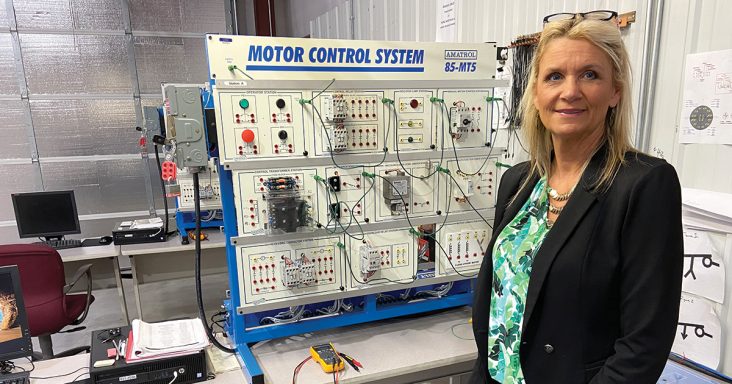NWACC, Business and Industry Training announce transfer agreement
by May 11, 2023 1:08 pm 1,040 views

Julie McAllaster is director of Springdale-based Business and Industry Training. The nonprofit, with two locations in Northwest Arkansas, has provided skills training to area workers since 1996.
An agreement between Springdale-based nonprofit Business and Industry Training (BIT) and NorthWest Arkansas Community College (NWACC) allows BIT students to transfer training hours to NWACC, according to a Wednesday (May 10) news release. The training hours will go toward an associate degree.
BIT, which also has a Gentry location, has been providing short-term skills training to area workers since 1996. NWACC, the state’s largest two-year college, opened in Bentonville in 1990. Enrollment at the college, which also has a Springdale facility, rose by 7.9% to 7,593 in 2022 from 7,037 in 2021.
“For the first time in Business and Industry Training’s 27-year history, students will have the opportunity to transfer the hours earned at BIT to go toward a degree program at a traditional college like NWACC,” said BIT Director Julie McAllaster.
According to the release, students taking specific coursework at BIT can request learning credits from NWACC. The college will accept up to 30 hours to be applied as credits toward an associate degree in general technology.
“NWACC is committed to being a premier provider of accessible and affordable, short-term training in the manufacturing and industrial maintenance industry,” said Eve Aldridge, interim dean of workforce development at NWACC. “As Northwest Arkansas’ largest community college and provider of secondary and career technical education, we are poised to offer additional opportunities to grow talent in the region and provide credible pathways to employability and career progression. We encourage businesses to support our efforts and job seekers to contact the college to learn more.”
BIT board member Rodney Ellis, who’s also the workforce director at Springdale Public Schools, said the partnership between BIT and NWACC allows existing workers “a credit path through technical short-term training, offering flexibility in pursuing a technical certificate or (associate degree in general technology).”
Mike Rogers, chief workforce officer for the Governor’s Workforce Cabinet, praised the partnership. “Creating a qualified technical workforce in today’s market requires a fresh look at how talent is recruited, prepared, empowered and retained,” he said. “Success is found when talent and technical providers work together, focusing on the expressed needs of the employers.
“Manufacturing technical and skilled trade professionals take two to 10 years to develop, and only through hands-on experience with actual demonstration of performance,” Rogers added. “This model can accelerate that, both in reduced time and improved quality.”
